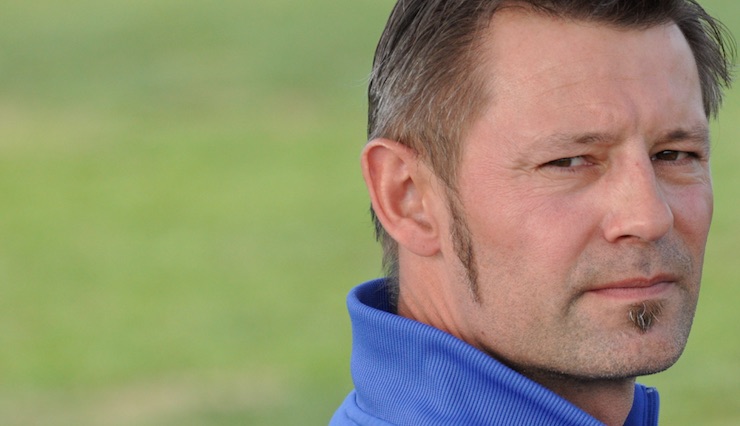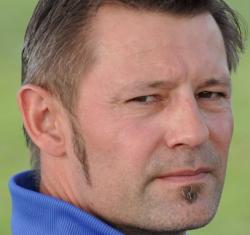Youth Soccer News: Successful Player Development Starts With The Director of Coaching’s Philosophy
SoccerToday’s columnist Lloyd Biggs is an outstanding coach whose passion and dedication for player development is well known. Biggs is technical director for one.Soccer Schools which trains 3,000 youth soccer players all across the USA. Also a youth coach for Real So Cal, Lloyd holds his UEFA ‘A,’ USSF ‘A’ and NSCAA Premier licenses, as well as a degree in sports science.
What makes player development successful? Why do some youth soccer clubs succeed where others flounder? Why do some clubs grow while others lose players and coaches? Player development starts at the heart of the youth soccer club; with the club’s coaching philosophy.
Firstly, The philosophy of a club is of primary importance and should be taken seriously by the clubs board and coaching directors. When we visit a club’s website, there is a good chance we will locate the clubs philosophy and from reading their philosophy we should be given a clear idea into the club structure, development program and goals for the their players/teams. In addition we usually get a feel for the size of the club and its past success.
All youth soccer clubs will have a philosophy and I am sure you agree that most philosophies are similar in their statements and intentions. To walk the walk, and succeed in what you say you are going to do, everyone must be on the same page.
It is imperative that all coaching staff are educated in the very foundations of the clubs philosophy, and that those coaches own philosophies match, to a large extent, the clubs way of thinking.
What about the end customer; the parents and players?
In addition it will be important for the club to also educate the parents within the club, outlining the clubs philosophy, core values and pathways to excellence.
There is no doubt in my mind that clubs who have clearly thought about their philosophy, are committed to its core values for the long term, and have the support of the coaching staff and parents, will have more success in long term player development.
|
A coaches Philosophy should encompass the core values of the coach, his/her passion for why they coach and the blueprint they want to impart on those payers they teach, not only in regards to the style of soccer they are respected for playing on the field but also how they act off the field. I believe that it is a great idea for every coach to spend some time writing his or her personal coaching philosophy.
Inspired by the article from UEFA’s The Technician on Philosophies, I have taken some quotes and blended them with my own thoughts below with the hope that this will both be interesting to the reader and inspire the coach to create/refine his or her philosophy.
“You must love the game and want to share with the players a certain way of life, a way of seeing soccer” (Arsene Wenger). Concerning the technical and tactical aspects of the game, the coach must have a clear vision of the style of soccer he/she wants his team to play. The team (That is Coach, Players and Parents) must all be made aware of the style of soccer and the coach must have the coaching, management and leadership skills required to develop his/her teams style. The style of soccer may be enforced by the club philosophy and there may be different expectations depending on age, hence the coach has to ‘buy’ in to the clubs style of play for that particular age group.
I do not think it is fair to judge coaches on results
“Those who focus on the best result rather than the best soccer are less vulnerable than others” (Rinus Michels). A great statement that is so true about youth soccer. It is important that we (Coach, Players & Parents) are bold and brave in our convictions to play the best soccer at the increased risk of making mistakes that may cost us the result at an early age. The topic of winning games will be a big debate within your philosophy, and the importance of the outcome of the result will vary depending on the age of the players you are working with.
In my opinion coaches working with youth players should always place the development and well being of the player in front of the outcome of the game, but have the ability to create an environment imposing a ‘Winning Mentality’ within the player.
“I do not think it is fair to judge coaches on results. You have to see how they work, judge their philosophy and assess their relationship with the players” (Louis Van Gaal). Van Gall’s comments mean so much, do you not agree? The coach must act as a role model to the players. Our goal is develop a person who is respected on and off the field, so we must be considerate of this in all our decisions and actions as coaches, again being true to our own philosophy!
“You have to make each player feel equally useful, but not indispensible” (Marcello Lippi). The coach will need to make every player feel part of the team, feel like they belong to the team. Strong convictions in regards to such topics as playing time in competitive games and holding all players accountable to the rules and guidelines set for the team will be important. In addition recognizing every player is different, and having the management skills to get the best out of them, while holding true to the values set within your philosophy, will be a key to success.
It should be noted that the time you put in to create your philosophy and clearly communicate to your players and parents, the style of soccer, and the technical and tactical elements required by the individual player to effectively fulfill their roles within the competitive environment, will mean nothing if you do not act on your words. The next step is to have a clear methodology within your training program.
“I use a global method. Yes, I use direct methods when preparing our organization, but I also use guided discovery where I create the practice, dictate the aim, and the players come up with different solutions” (Jose Mourinho).
Lastly, do not forget to always challenge yourself and do not be afraid to adapt and change your philosophy to fit within the ever-changing realm of soccer styles and training. “I am always questioning, always looking for new solutions, new ways to proceed” (Rafael Benitez).
Your coaching philosophy is an important tool. Spending time creating it is time you will not waste. Coaches with solid philosophies who consistently follow though with their core values will overtime gain more fulfillment than any trophy can ever give, that is the respect and appreciation from your players and their parents for many years to come, even after the boots have been hung up!
Please look out for my next article, where I will discuss my thoughts developing long-term development coaching curriculums, discussing both age specific training and exit standards and also position specific training.
The above article was inspired from an article I read in UEFA’s “The Technician,” which made me think about the importance of a coaches philosophy and its impact on developing youth soccer players.
Lloyd Biggs is the current technical director for one.Soccer Schools, which currently coaches over three thousand players across eleven different states. At one.Soccer Schools, Biggs and co-owner Jeff Johnson have developed a unique set of residential and soccer camp programs that take place around the country. Biggs also coaches for Real So Cal in Southern California. Formerly a youth coach for Charlton FC, Lloyd came to the states eight years ago. Lloyd holds his UEFA ‘A’, USSF ‘A’ and NSCAA Premier licenses, as well as a degree in sports science.






